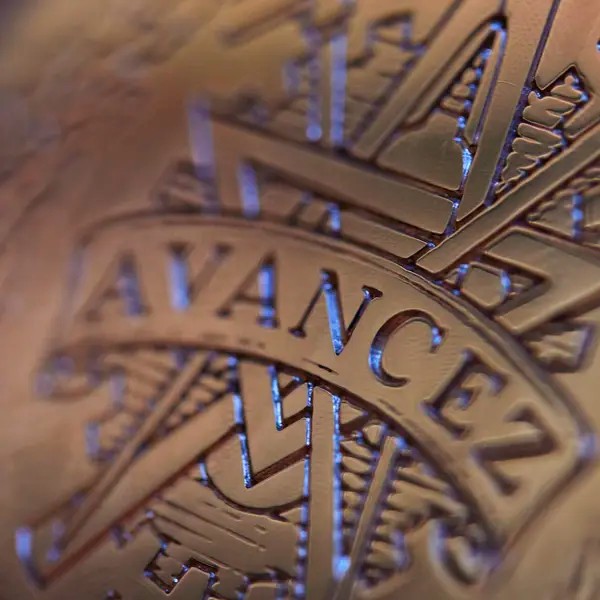Our research groups make the foundation of the research in the centre. It is from the research groups we collect the expertise we then link together to tackle the challenges described in our research themes.
Each research group has its own culture and strategy matched to the cutting edge of contemporary science in that area. Within the centre all research themes and projects are collaborations between at least two research groups. Below we provide detailed descriptions of the research, the personnel and contact details.

Research projects and publications
In Chalmers research database, Research, you can find our researchers' publications and research projects.
Systems Engineering Design
Core competence
The research team in Systems Engineering Design is an internationally well recognized and nationally leading research group with strong networks in both academia and industry. The group’s core competence is design theory and methodology, product modelling and product data management within the Platform Based Development, Value Driven Design, Systems Engineering, Multidisciplinary Engineering and Product Lifecycle Management.
Research group leader and members
The group consists of 2 chair professors, 1 adjunct professor, 4 additional senior researchers and 8 PhD students.
Learn more about the research group and see the full list of members.
Industrial and scientific challenges
- Theoretical and methodological framework: Development of new powerful methods for integrated multi-technological system product development requires a common theoretical framework.
- Generic architecture for integrated multi-technological platforms: For integrated multi-technological platforms, the key to efficient reuse of knowledge is a generic architecture, that can describe the platform throughout its lifecycle with its contained design rationale and its configurable integrated multi-technological hardware and software sub-systems solutions.
- Integrate development of methodology and IT support: Future development methods and IT tools need to be developed in close interaction in order to effectively support complete integrated multi-technological platform development processes.
Geometry Assurance and Robust Design
Core competence
The core competence within this group is within assembly modelling and analysis, robust locating system design, variation simulation, visualization, tolerance optimization, inspection preparation and use of inspection data for product and process control.
The research team has over the last decade produced a number of scientific results that have been transferred into commercial software products. Today, these results are being used in daily operation by a large number of engineers within 20-25 international companies.
Research group leader and members
The group currently consists of 1 chair professor, 1 adjunct professor, 6 additional senior researchers and 9 PhD students.
Learn more about the research group and see the full list of members.
Industrial and scientific challenges
- Accuracy in simulation and visualization: High quality decisions, based on digital models and representations require:
- better simulation models with higher accuracy and better representation of reality
- better quality in input data for simulation models
- better ways to present and use simulation results.
- Transferring simulation results into new product and process knowledge: Consistent use of simulation in different stages of the geometry assurance loop generates new knowledge and better understanding of specific product and production system behaviour, interaction and error propagation and perception and interpretation of digital models and visual quality.
- Design rules and working procedures based on new knowledge: New knowledge of specific system behaviour, perception and visual quality are used to establish rules and decision support for robust geometry design and guidelines and working procedures for use of simulation and visualization.
Geometry and Motion Planning
Core competences
The core competences within this research group are automatic motion planning of robots, digital humans and rigid bodies, geometric scheduling and routing, discrete geometry and mechanics, AR, computer graphics, and software implementation.
The research team has over the years produced several results, related to the core competences, that have been transferred into commercial software products, today used in daily operation by engineers in Sweden, Germany, US and Japan.
Research group leader and members
The group includes more than 20 researchers at FCC.
Learn more about the research group and see the full list of members.
Industrial and scientific challenges
The research group aims at providing world leading technical/digital solutions at the boundary between strategic scientific research and industrial implementation in:
- Assembly Planning and Digital Human Modelling. The goal of the research is to be able to secure assembly feasibility, quality and to avoid work related disorders by providing digital tools with unique simulation capability. The focus will be on enhancing the speed and fidelity of the human motion simulation and on utilizing/connecting to the rapid development of VR, sensors and collaborative robotics.
- Advanced Robotics and Optimization. The goal of the research is to improve equipment utilization and throughput in robot lines which also includes energy minimization. The focus will be on automatic path planning, balancing, sequencing and coordination of tasks between robots. The applications range from welding, gluing, inspection, to AM.
- Design and Assembly of Flexibles. The goal of the research is to improve design, verification, manufacturing, and assembly of flexibles components, e.g. pipes, cables, hoses, and wiring harnesses, to support electrified vehicles. The focus will be on real-time simulation of mechanical behavior, optimization of design and manufacturing attributes and automatic path planning for assembly.
Automation
Core competences
The core competences of this research group lie in the integration of perception, planning, control, and actuation within automation systems. Additionally, the group focuses on employing rigorous testing and verification methods to assess system safety. We create methods and tools for efficient, flexible, and safe automation systems capable of collaborating with humans.
Applications span industrial automation and autonomous systems, as well as the use of robotic devices in medical applications.
Research leader and members
The group includes at present 4 professors, 1 adjunct professor, 1 senior researcher, 1 post-doc, 1 researcher and 12 PhD students.
Industrial and scientific challenges
- Information integration: Huge amount of information is stored in today’s manufacturing design process. The challenge is to make necessary information for simulation and control design available in a simple and efficient manner.
- Complexity issues: New tools developed within this research area involve inherently complex computations. Both efficient algorithms and data structures, which exploit the modular structure of the problem, are considered to be able to solve real industrial problems.
- Simple user interaction: To obtain industrial acceptance it is crucial to obtain simple methods and working procedures. User-friendly software interfaces and interaction are necessary, where the user can map the software and the physical behaviour onto each other.



